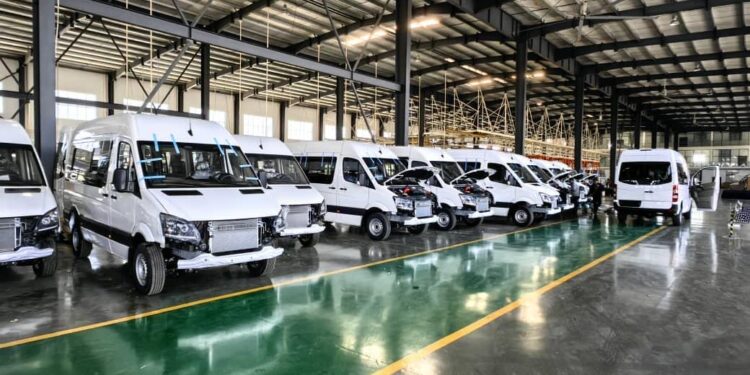The Federal Government of Nigeria has announced plans to reduce the importation of Premium Motor Spirit (PMS), commonly known as petrol, by approximately $4.4 billion annually by promoting the use of Compressed Natural Gas (CNG). This initiative, announced through the Presidential Compressed Natural Gas Initiative (PCNGI), aims to convert one million diesel and petrol-powered vehicles to run on CNG.
Zayyan Tambari, the Coordinator of Regulations, Compliance, and Facilitation at PCNGI, stated that this move could save the country about $4.4 billion annually on PMS importation. The government’s target is to replace 20 percent of the current 50 million liters of petrol consumed daily across the country with CNG.
Recently, the Federal Government commenced the roll-out of CNG-powered buses and tricycles, starting with a launch in Ilorin, Kwara State. Special Adviser to the President on Information and Strategy, Bayo Onanuga, explained that the launch included the unveiling of CNG buses and tricycles, with the process initiated at a conversion center in Ilorin.
At a co-creation session in Abuja, it was revealed that approximately $890 million investment would be required to develop infrastructure for the alternative fuel. Minister of State for Petroleum Resources (Gas), Ekperikpe Ekpo, emphasized the need for safety in the use of CNG and compared the potential impact to the emergence of cell phones during the early 2000s.
Ogbugo Ukoha, Executive Director of Distribution System, Storage, and Retailing Infrastructure at the Nigerian Midstream and Downstream Petroleum Regulatory Authority (NMDPRA), stated that new filling stations would only be licensed if they provide points for dispensing CNG. The Project Director/Chief Executive of PCNGI, Michael Oluwagbemi, highlighted the advantages of gas as a cheaper, cleaner, safer, and more sustainable energy source for Nigeria.
Oluwagbemi also announced the commencement of a nationwide CNG conversion program for mass transit buses, starting in Lagos, Kwara, the Federal Capital Territory, and Rivers states. This initiative aims to significantly reduce emissions and promote environmental sustainability in partnership with major transport unions.
























